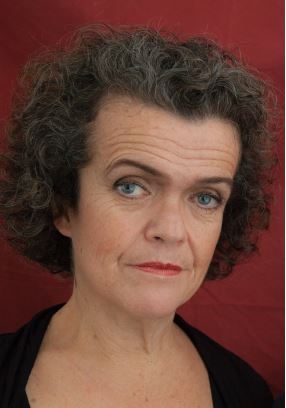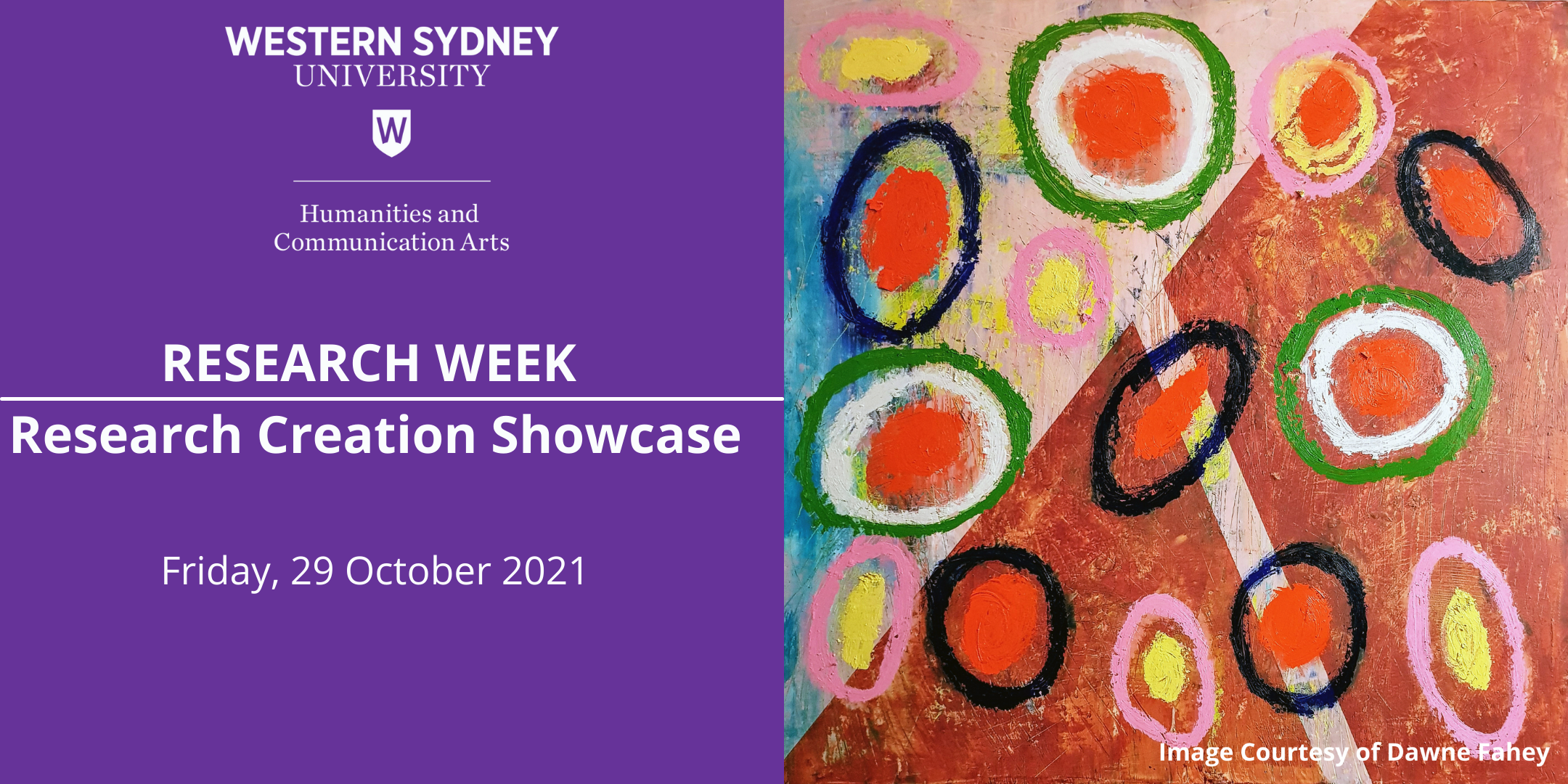Research Creation Showcase 2021
Event Details
Date: Friday, 29 October 2021
Time: 10am - 5:30pm
Event Program
Catalogue
Research Creation Showcase 2021 Virtual Gallery
Welcome to the HCA Research Creation Showcase as part of Research Week 2021.
About this event
The Research Creation Showcase 2021 is in its 7th year of coinciding with the University’s Research Week celebration of all things research. The School of Humanities and Communication Arts is proud to participate in activities that are featured across the research landscape of the University. 2021 is the second year in which we have moved online for our event, featuring research outcomes from School staff and postgraduate students across Design, Music, Media Arts, and Humanities. As a showcase of creative practice and research, we feature an online exhibition of creative works including posters, films, photography, writing and music curated by a team drawn from the School of Humanities and Communication Arts. This event highlights our prolific maker/scholars and establishes the intrinsic link between making and knowing. A suite of artists' talks, curators’ presentations, panels, performances and keynotes are drawn from both academics and our partners in the creative industries. Additionally, the top researchers in the School will be recognised at our School researcher awards presentation.
Keynote
Arts and the Psychosocial Dynamics of Empathy - Finding A Creative Path to Social Change by Dr Debra Keenahan
The keynote is supported by Auslan interpretation and Closed Captioning services.
The psychologist Alfred Adler described empathy as “seeing with the eyes of another, listening with the ears of another, and feeling with the heart of another”. Increasing empathy for disability can decrease discriminatory practices and improve the social conditions of those living with disability. But the question remains - how to increase empathy for disability? Through my art research I developed the concept of Critical Disability Aesthetics (CDA) that extends upon the current conceptualisation of Disability
Aesthetics (DA). I argue that DA adheres to a restrictive definition of the term aesthetics as anchored in the judgement of beauty, whilst CDA explores the broader sense of aesthetics as a sensory-affective process. This framework provides a conceptual grounding for a practice-based exploration of the embodied dimensions of lived experience. As an artist, psychologist, and a woman with disability - achondroplasia dwarfism - I explore the experience of corporeal difference from a subjective position. My work examines the framing of disability but also the embodied social interactions of a female dwarf. In my art practice I deploy different media (2D, 3D, VR, Performance, Video) to elaborate various dimensions of this experience. Through my artwork I show how CDA can advance the understanding of the subjective and intersubjective experience of ‘disability’, which is not a quality of the subject but rather, arises within a social nexus.
Dr Debra Keenahan (opens in a new window) is a visual artist, psychologist, academic and author. Throughout her
Panel Sessions
Postgraduate Panel: Making and Knowing: Maker-Scholars and the Doctoral Journey
The maker-scholar’s work falls into the area of critical practice, exploring the intersections between theory, history, and a variety of production practices, and whose research includes a commitment to critical paradigms expressed and embodied both in scholarship and practice. The maker-scholar also extends a larger tradition of critical scholarship, complementing a commitment to original, interdisciplinary research with forms of expression not limited to the written word alone.
This panel includes several maker-scholars at various stages of their Doctoral journey across a range of media and art practices. They will present a sense of their research case and creative practice and how they see the multiple challenges of Doctoral research.
Co-chairs: Professor Hart Cohen & Dr Rachel Morley
Presenter: Dawne Fahey, Rev Mel Macarthur, Ramona Kennedy, Naomi McCarthy, Stephen Ridgeway, Emily Rytmeister and Enrico Scotece
Radical Accessibility: Are We Radical (Enough)?
Radical Accessibility is a direct response to our shared responsibility of working to explore new ways of making real change across the arts and cultural sectors. Building on conversations from last year's Research Creation Radical Accessibility event, the panel explores what it means to be and do 'radical', especially when it comes to dismantling inequities in the arts. We'll talk about cultural equity and inequity, disrupting old leadership models, diversity and expression, participation and access, and allyship, amongst other topics. The panel is a product of a long-term collaboration between WSU and Utp and comprises of leaders in provocation and change-making from across the creative sectors.
The panel is supported by Auslan interpretation and Closed Captioning services.
Facilitators: Dr Jessica Olivieri and Riana Head-Toussaint
Panel members: Riana Head-Toussaint, Belqis Youssofzay and Zainab Syed, with an introduction by Dr Rachel Morley.
Lightening Talks and Researcher of the Year Awards
Introduction to Casula Powerhouse Arts Centre
Flashtalk: What is Diverscreens?
Mobile options:


